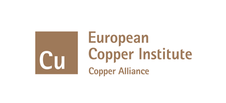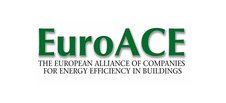Search eceee proceedings
Renewbility: options for a decarbonisation of the transport sector up to 2050
Panel: 4. Mobility, transport, and smart and sustainable cities
This is a peer-reviewed paper.
Authors:
Wiebeke Zimmer, Öko-Institut (Institute for Applied Ecology), Germany
Ruth Blanck, Öko-Institut, Germany
Rita Cyganski, Deutsches Zentrum für Luft- und Raumfahrt (DLR), Institut für Verkehrsforschung, Germany
Martin Peter, INFRAS, Switzerland
Axel Wolfermann, Deutsches Zentrum für Luft- und Raumfahrt (DLR), Institut für Verkehrsforschung, Germany
Tudor Mocanu, Deutsches Zentrum für Luft- und Raumfahrt (DLR), Institut für Verkehrsforschung, Germany
Abstract
The project „Renewbility” presents several climate protection scenarios for the transport sector in Germany, modelling vehicle stocks, transport demand, energy consumption, CO2-emissions and economic effects. Funded by the German Ministry for the Environment, this project has involved a broad range of stakeholders and thus included different positions and interest in the design of the scenarios. Common objective of all scenarios is the full decarbonisation of the transport sector until 2050.
The results show the need for future-oriented political action: Electric vehicles need to be an essential pillar of an overall strategy against climate change up to 2050. Power-generated fuels should only be used where no other option exists – probably in air and marine transport. Effective policy measures include the phase-out of the internal combustion engine, which could be realised by more ambitious CO2-standards combined with increasing fuel prices.
Moreover, the scenario analysis indicates that increasing sustainable urban mobility would be an effective strategy not only for a higher quality of life for citizens, but also against climate change. In order to offer alternative options for car users, the promotion of sustainable transport modes such as public transport and cycling is necessary. Important policy measures for local authorities include parking space management. Implementing measures for enhancing the quality of public transport, rail freight traffic, and life in cities is even expected to increase GDP and reduce external costs.
In summary, the decarbonisation of the transport sector offers the opportunity to combine climate protection with a positive economic balance. It is the role of policy makers to build up the necessary framework to realise these benefits and successfully combat climate change. In order to achieve a fully decarbonised transport sector until 2050, transformation processes in both society and industry have to begin as soon as possible.
Downloads
Download this presentation as pdf: 4-110-17_Zimmer_presentation.pdf
Download this paper as pdf: 4-110-17_Zimmer.pdf
Panels of
1. Foundations of future energy policy
2. Policy: governance, design, implementation and evaluation challenges
4. Mobility, transport, and smart and sustainable cities
5. Buildings and construction technologies and systems
6. Buildings policies, directives and programmes
7. Appliances, products, lighting and ICT
8. Monitoring and evaluation: building confidence and enhancing practices























